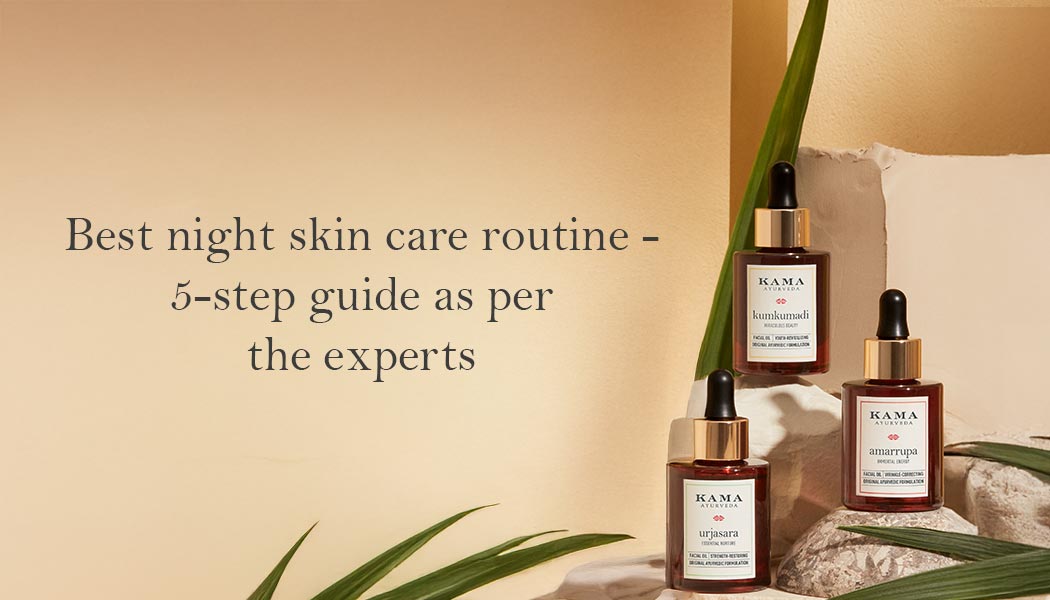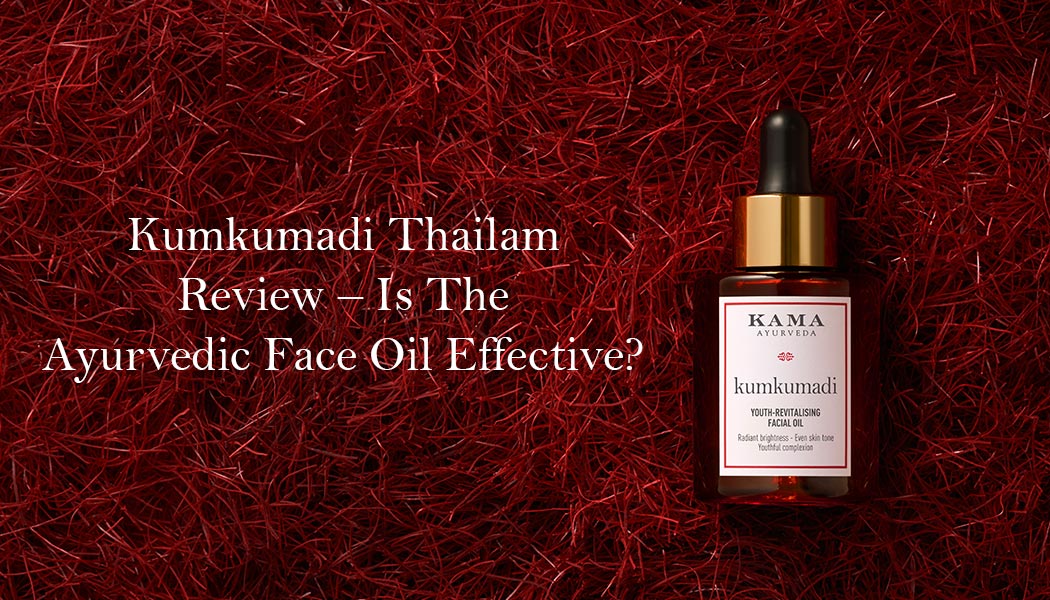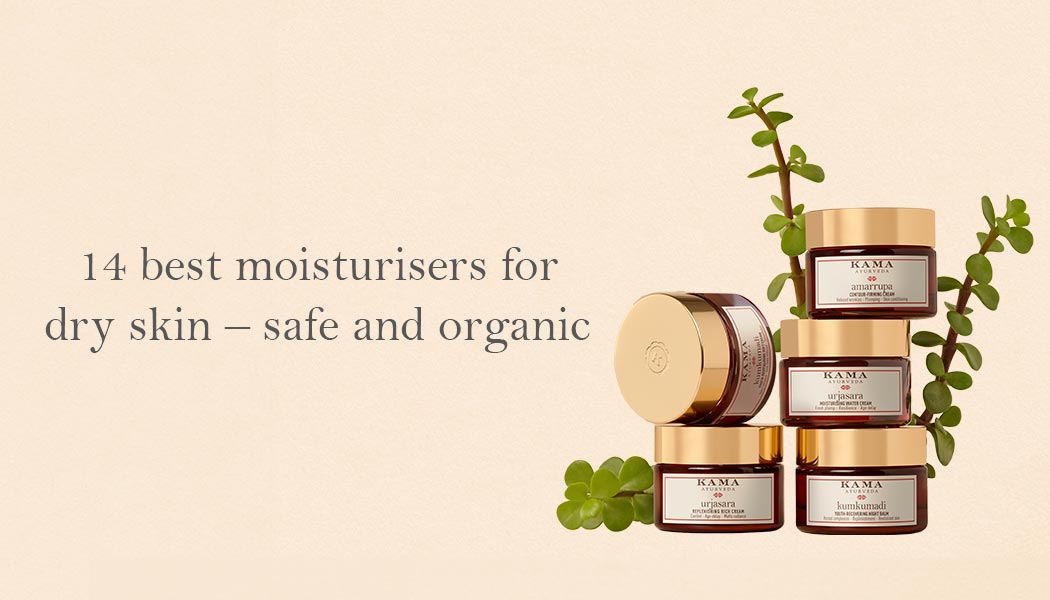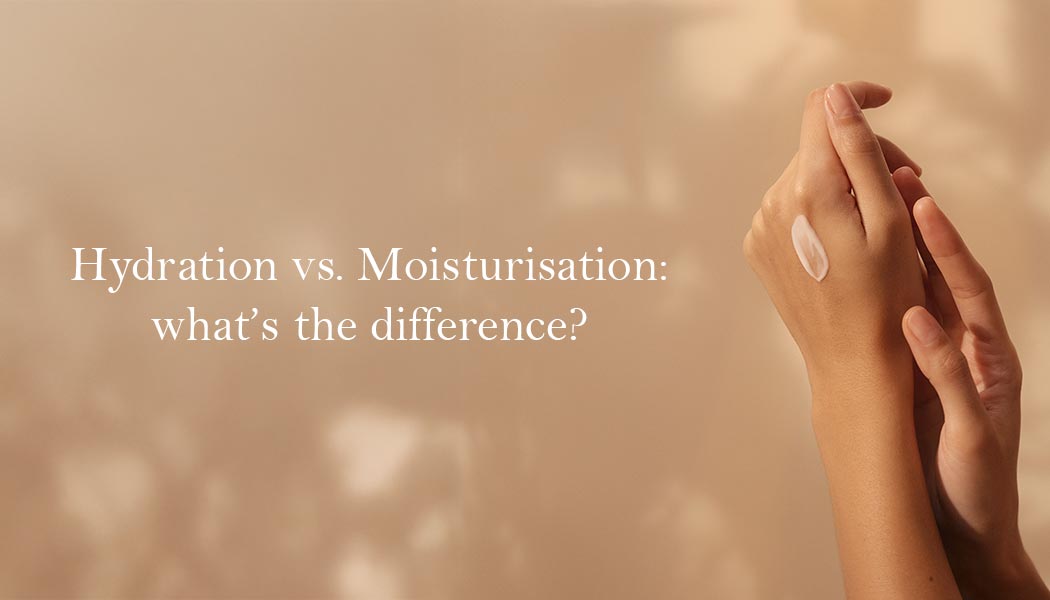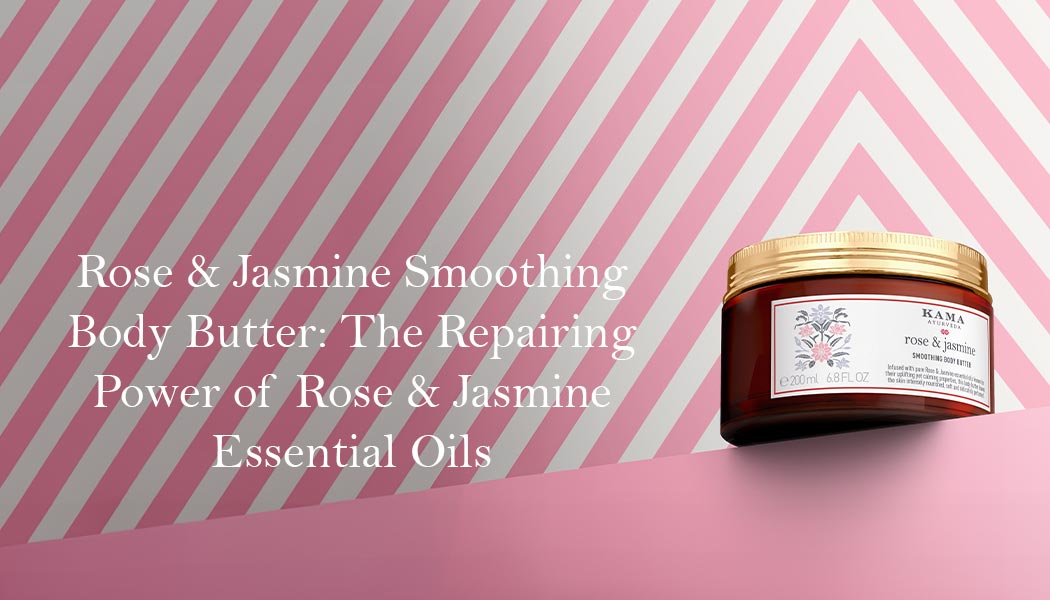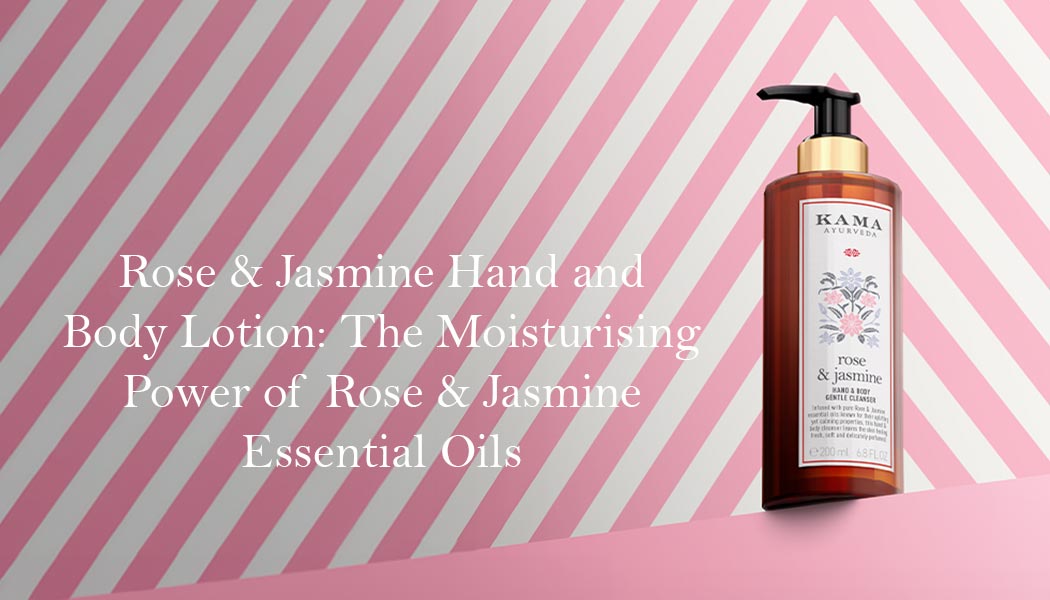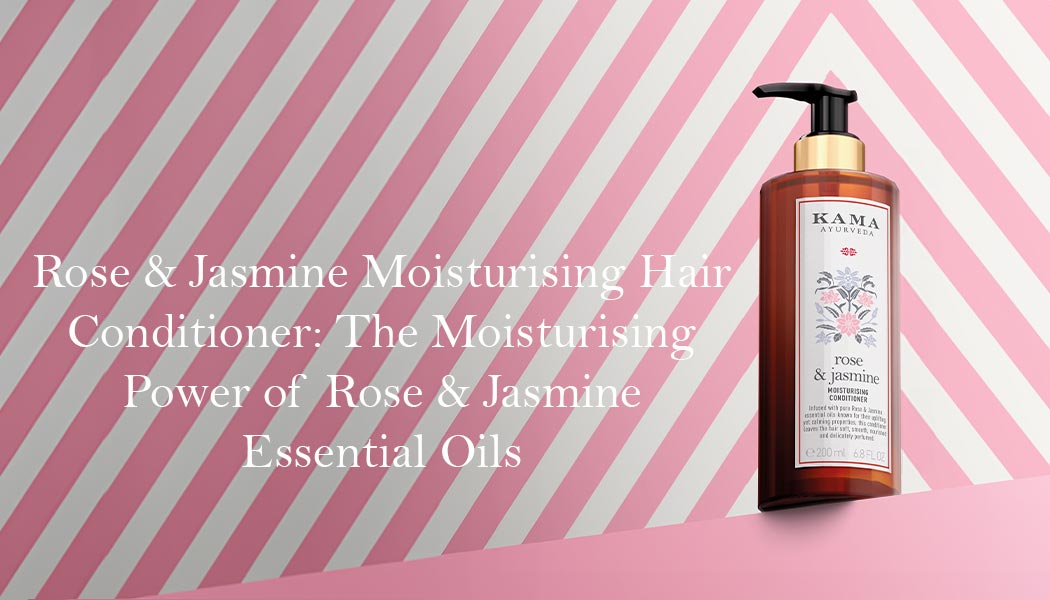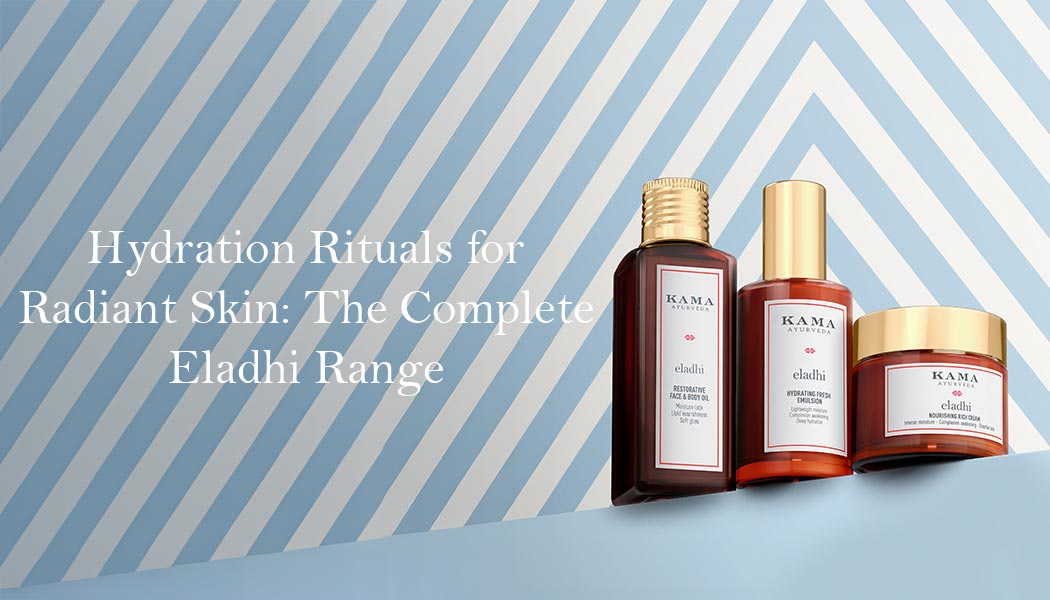- 8 May 2023
- 12 mins read
Acne can be frustrating and downright annoying, but what if I told you there was a magical spice that could help? Enter turmeric, the superhero spice for acne-prone skin! This bright yellow powder is known for its powerful anti-inflammatory and antibacterial properties, making it a game-changer for those struggling with acne.
Turmeric has been used for centuries in ancient healing practices to help treat a variety of skin issues, and now, it's gaining popularity in the world of modern skincare. From turmeric face masks to supplements, people are turning to this magical spice to help achieve clear, healthy-looking skin.
So, if you're looking for a natural way to tackle acne, look no further than turmeric. This spice is not only delicious in your favorite meals but can also work wonders for your skin. Say goodbye to pesky pimples and hello to your new superhero sidekick, turmeric!
Read - How To Get Rid Of Pimples Naturally – A Complete Guide
What Is Turmeric?
Derived from the Curcuma longa plant, Turmeric is a spice that has been used for centuries in traditional medicine for its healing properties. Its active compound, curcumin, is what gives turmeric its distinctive bright yellow color.
In addition to being a staple ingredient in Indian and Middle Eastern cuisine, Turmeric has become increasingly popular in recent years as a natural supplement and skincare ingredient.
But that's not all! Turmeric has a fascinating history that spans centuries and cultures. From warding off evil spirits to being used as a natural dye for clothing, this spice has been an integral part of many cultures throughout history.
So, whether you're using it to add flavor to your favorite dish or reaping its potential health benefits, Turmeric is a spice that truly deserves a place in your pantry.
Is Tumeric Good For Acne?
Turmeric has been shown to have potential benefits for acne-prone skin. Its active ingredient, curcumin, has been found to have strong anti-inflammatory and antibacterial properties, which help reduce inflammation and fight bacteria that can lead to acne breakouts.
In addition to its anti-acne properties, Turmeric also helps reduce the appearance of acne scars and improve the overall texture and appearance of the skin. Its antioxidant properties protect the skin from free radical damage, which can cause premature aging and other skin issues.
According to Ayurveda, Turmeric has a heating and drying effect on the body, making it particularly effective in treating conditions related to excess oil, such as acne.
It is believed to have a balancing effect on the three doshas, or energies, that make up the human body: vata, pitta, and kapha. Turmeric is said to be particularly beneficial for balancing the kapha dosha, which is associated with heavy, oily, and congested conditions such as acne.
Top Skin Benefits Of Turmeric For Acne
Turmeric is more than just a spice - it's a natural skincare ingredient that offers a variety of skin benefits, including its ability to treat and prevent acne. Let’s understand how it benefits skin and helps fight acne.
1. Anti-inflammatory Properties
Inflammation is a major factor in the development of acne, as it can cause the skin to become red, swollen, and irritated. This can lead to the formation of pimples, whiteheads, and blackheads.
Turmeric contains a compound called curcumin, which has been shown to have powerful anti-inflammatory effects. Curcumin can help reduce the production of inflammatory cytokines in the body, which are responsible for causing inflammation in the skin.
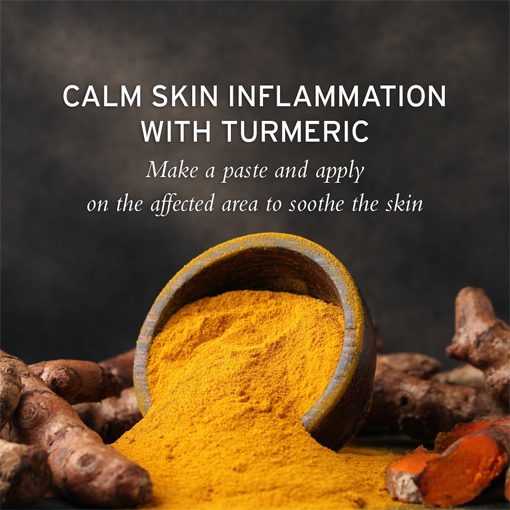
2. Antibacterial Properties
Turmeric also has antibacterial properties that can help fight the bacteria that contribute to the development of acne breakouts. Acne is often caused by the buildup of bacteria on the skin, which can lead to inflammation and infection.
Circumin in Turmeric also has antibacterial properties. This compound helps kill the bacteria that contribute to acne breakouts, preventing the formation of new pimples and reducing the severity of existing breakouts.
3. Regulates Sebum Production
Sebum is an oily substance produced by the sebaceous glands in the skin. When the sebaceous glands produce too much sebum, it can clog pores and lead to the development of acne.
Curcumin in Turmeric has been shown to help regulate sebum production by inhibiting the activity of 5-alpha-reductase, an enzyme that converts testosterone to dihydrotestosterone (DHT). DHT is known to stimulate sebum production, so inhibiting its production can help reduce sebum production and prevent acne.
Read - How To Close Open Pores On Face?
4. Reduces The Appearance Of Acne Scars
Turmeric has been shown to have skin lightening properties, which can help to reduce the appearance of dark acne scars. This is because Turmeric inhibits the production of melanin, the pigment that gives skin its color. By reducing melanin production, Turmeric can help to fade dark spots and hyperpigmentation caused by acne scars.
You can use Kama Ayurveda’s Nalpamaradi Thailand Skin Brightening Treatment on your body to benefit from skin brightening properties of Turmeric.
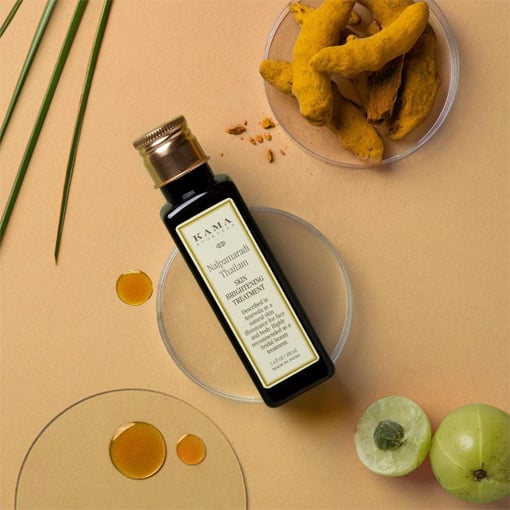
5. Soothing And Calming Effect
Turmeric is an anti-itch herb (kanduhara) that soothes skin irritations resulting from acne. The soothing and calming effect of Turmeric on the skin can also help prevent acne by reducing inflammation, balancing oil production, boosting skin health, and preventing bacterial infections.
6. Exfoliates The Skin
Turmeric contains natural exfoliating enzymes that can help remove dead skin cells and unclog pores, which can help prevent acne. When used as a scrub, Turmeric can help slough off dead skin cells and reveal smoother, clearer skin.
7. Neutralizes Free Radicals
Turmeric is rich in antioxidants that can neutralize free radicals, which are unstable molecules that can damage cells and contribute to inflammation. By neutralizing free radicals, turmeric can help prevent inflammation and the formation of acne.
8. Calms Hormonal Acne
Turmeric helps balance hormones in the body, which can be particularly helpful for those who experience hormonal acne. By reducing the production of androgens, which can cause excess oil production and acne, Turmeric can help prevent new breakouts from forming.
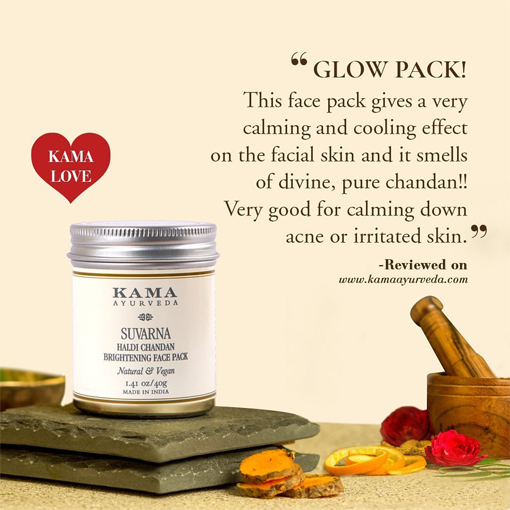
9. Natural and Safe Solution
Unlike some prescription acne medications, Turmeric is a natural and safe ingredient that does not have harmful side effects. It is a great option for those who prefer to use natural remedies for their acne.
10. Boosts Collagen Production
Turmeric contains compounds that can help boost collagen production in the skin. Collagen is a protein that helps keep the skin firm and elastic, and its production naturally decreases as we age. By promoting collagen production, turmeric can help improve the overall health and appearance of the skin.
11. Wound Healing Properties
Turmeric has been used for centuries as a natural remedy for wound healing. It contains curcumin, a compound that can help reduce inflammation and promote tissue regeneration. When applied topically, Turmeric can help speed up the healing process of acne breakouts and prevent scarring.
12. Detoxifying Properties
Turmeric is known for its detoxifying properties, which can help remove toxins and impurities from the skin. This can help prevent acne breakouts and promote overall skin health.
13. Protecting The Skin From Damage
Turmeric's antioxidants can help protect the skin from damage caused by environmental factors such as pollution, UV radiation, and stress. This protection can help prevent the breakdown of collagen and elastin, which can lead to premature aging and skin damage.
14. Supports Immune System
Turmeric has immunity boosting properties that can help support overall health and well-being. By strengthening the immune system, Turmeric can help the body fight off harmful bacteria that can contribute to acne breakouts.
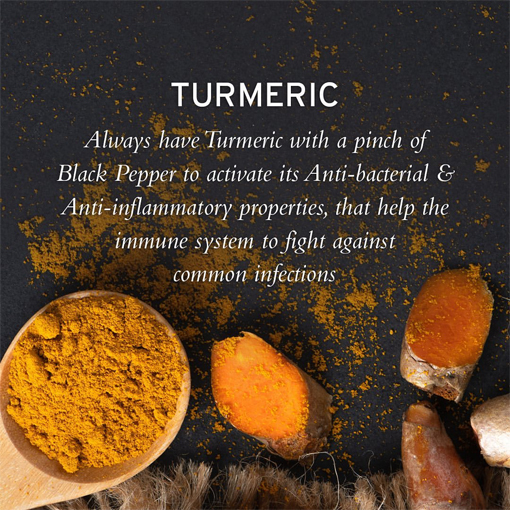
How To Use Turmeric For Acne and Acne Scars?
Want to spice up your acne-fighting routine? Look no further than your spice rack to prepare these face packs - Turmeric can be a powerful weapon against acne and acne scars.
1. Turmeric and Honey Mask:
Honey has antibacterial properties that can help prevent acne, while Turmeric can help reduce inflammation and redness.
Mix 1 teaspoon of Turmeric powder with 1 tablespoon of honey to create a paste. Apply the paste to your face and leave it on for 10-15 minutes before rinsing off with warm water.
2. Turmeric and Yogurt Mask:
Yogurt contains lactic acid, which can help exfoliate the skin and prevent acne, while Turmeric can help reduce inflammation and prevent future breakouts.
Mix 1 teaspoon of Turmeric powder with 2 tablespoons of yogurt to create a paste. Apply the paste to your face and leave it on for 10-15 minutes before rinsing off with warm water.
3. Turmeric and Aloe Vera Mask:
Aloe Vera has anti-inflammatory properties that can help soothe irritated skin, while Turmeric can help prevent acne breakouts.
Mix 1 teaspoon of Turmeric powder with 2 tablespoons of aloe vera gel to create a paste. Apply the paste to your face and leave it on for 10-15 minutes before rinsing off with warm water.
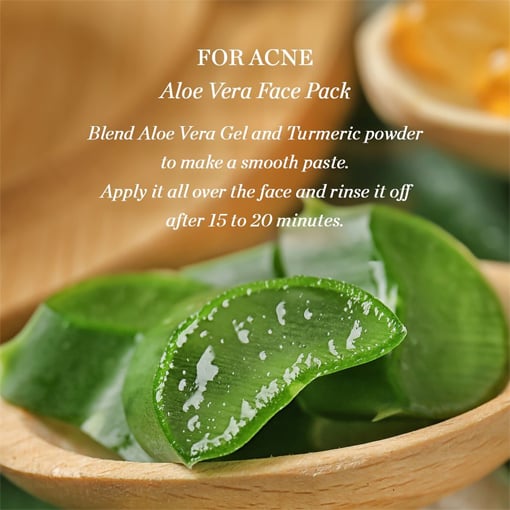
4. Turmeric and Sandalwood Mask
This mask combines the anti-inflammatory and antibacterial properties of Turmeric with the soothing and cooling properties of sandalwood and milk.
In a small bowl, mix the Turmeric powder and sandalwood powder together. Slowly add the milk, stirring until a thick paste is formed. Apply the mask to your face using your fingers or a brush, avoiding the eye area. Leave the mask on for 15-20 minutes, or until it has dried completely. Then rinse off with warm water and pat your skin dry.
We recommend using Kama Ayurveda’s Suvarna Haldi Chandan Brightening Face Pack to reap the brightening benefits of Turmeric and Sandalwood for your face.
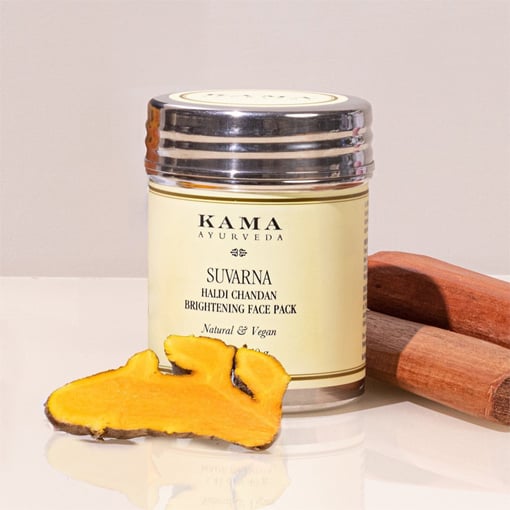
5. Turmeric and Lemon Mask
Use this mask to benefit from anti-inflammatory and antibacterial properties of turmeric along with the brightening and exfoliating properties of lemon.
In a small bowl, mix the Turmeric powder, lemon juice, and honey together. Apply the mask to your face using your fingers or a brush, avoiding the eye area. Leave the mask on for 10-15 minutes, or until it has dried completely. Wash your face with warm water and pat your skin dry.
6. Turmeric and Neem Mask
The Turmeric and Neem Leaves face mask can help prevent acne and reduce inflammation. This mask can also help purify the skin and reduce the appearance of acne scars.
In a blender or food processor, blend the neem leaves with a little bit of water until a paste is formed. Add the Turmeric powder to the neem paste and mix well. Apply the mask to your face using your fingers or a brush, avoiding the eye area. Leave the mask on for 15-20 minutes, or until it has dried completely. Rinse the mask off with warm water and pat your skin dry.
We recommend using Kama Ayurveda’s Ubtan Soap free Body Cleanser to reap the brightening and purifying benefits of Turmeric, Neem, Oats and Almonds for your body.
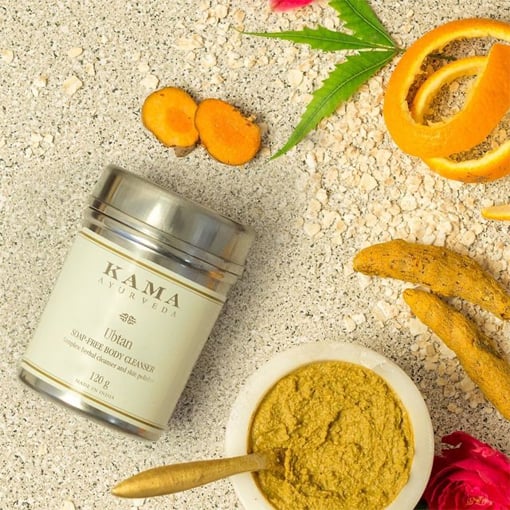
7. Turmeric and Cinnamon Mask
Mix together the Turmeric powder, Cinnamon powder and Rose Water until a paste is formed. Apply the mask to your face using your fingers or a brush, avoiding the eye area. Leave the mask on for 10-15 minutes, or until it has dried completely. Then wash your face with warm water and let it dry.
Cinnamon has antifungal and antimicrobial properties that can help fight off acne-causing bacteria. Rose water has anti-inflammatory and antimicrobial properties that can help reduce redness and swelling associated with acne.
8. Turmeric and Apple Cider Vinegar Mask
Apple Cider Vinegar is naturally exfoliating and has antibacterial properties that help prevent acne. It also maintains skin pH that inhibits the growth of acne-causing bacteria.
Dilute 1 teaspoon apple cider vinegar with a teaspoon of water. Add half teaspoon of Turmeric powder to it and then apply it on your face. Leave it to dry and then wash afterwards.
In addition to using these face masks, you can also use Kama Ayurveda’s Turmeric & Myrrh Skin Brightening Soap for reducing pigmentation and lightening skin tone.
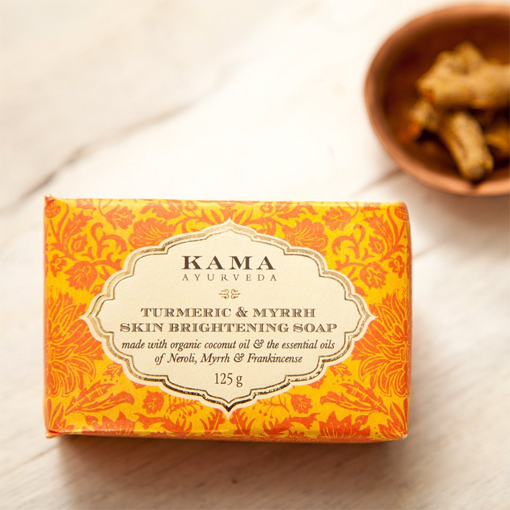
How To Include Turmeric In Your Diet For Acne?
There are many ways to include Turmeric in your diet to help prevent and treat acne, such as adding it to smoothies, curries, or even just drinking it with warm water and honey. Let’s talk about a few of them -
1. Turmeric Water
Turmeric water is a simple way to incorporate this beneficial spice into your daily routine. Simply mix a teaspoon of Turmeric powder with a glass of warm water and drink it first thing in the morning on an empty stomach. This can help to detoxify the liver, reduce inflammation in the body, and improve digestion - all of which can contribute to clearer, healthier skin.
2. Turmeric Tea
Another way to consume Turmeric is by making Turmeric tea, which can be as simple as mixing Turmeric powder with hot water and honey. You can also add other herbs and spices like ginger, cinnamon, and black pepper for added flavor and benefits.
3. Turmeric Milk
A popular Ayurvedic drink, Golden Milk is made by simmering Turmeric with milk (dairy or plant-based), honey, and spices like cinnamon and ginger. This warming and soothing drink is believed to have numerous health benefits, including helping to reduce inflammation and improve digestion.
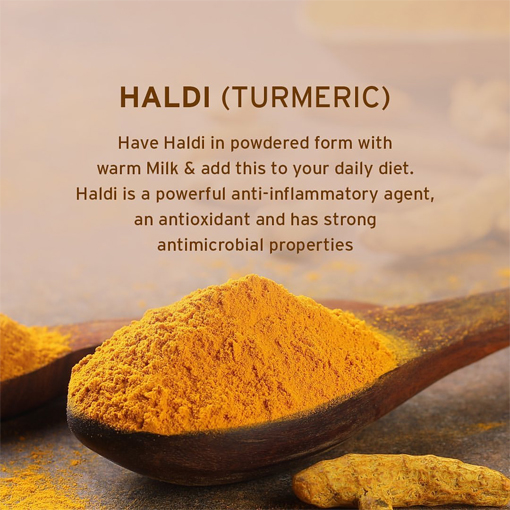
4. Lemon and Turmeric Juice
Turmeric and lemon juice can also be a powerful combination for fighting acne. Lemon juice is high in vitamin C, which can help to brighten and even out skin tone, while also providing antibacterial benefits.
5. Add To Your Curries
Turmeric is a staple spice in many Indian and Southeast Asian curries, which can be a delicious way to incorporate it into your diet. You can also make your own Turmeric-based curry at home by sautéing onions, garlic, ginger, and Turmeric powder, and then adding your choice of vegetables and protein.
6. Add To Your Smoothies
You can add a pinch of Turmeric powder to your daily smoothie for an extra boost of antioxidants and anti-inflammatory benefits. Try blending it with other acne-fighting ingredients like Spinach and Berries.
Frequently Asked Questions About Turmeric For Acne
Can Turmeric stain my skin?
Yes, Turmeric can temporarily stain your skin if used in large amounts or if left on for too long. To prevent staining, use Turmeric in moderation and always rinse it off thoroughly with warm water.
Can Turmeric cause allergic reactions?
Yes, some people may be allergic to Turmeric and experience symptoms such as hives, itching, or swelling. It's important to do a patch test before using Turmeric on your skin and discontinue use if you experience any adverse reactions.
How often should I use Turmeric for acne?
It's recommended to use Turmeric masks or other topical treatments for acne once or twice a week to avoid over-drying or irritating the skin.
Can I use Turmeric on sensitive skin?
While Turmeric can be beneficial for acne-prone skin, it may not be suitable for those with sensitive skin or conditions such as rosacea. It's best to do a patch test and consult with a dermatologist if you have concerns.
Can I use Turmeric with other acne-fighting ingredients?
Yes, Turmeric can be combined with other acne-fighting ingredients such as Honey, cinnamon, or Tea Tree oil for added benefits. However, always patch test and be cautious when trying new combinations to avoid irritation.
Can We Apply Turmeric On Acne Overnight?
It's not recommended to leave Turmeric on acne overnight as it can potentially stain the skin and cause irritation. It's best to use Turmeric in moderation and wash it off after 10-15 minutes. If you have sensitive skin or are prone to allergies, it's always a good idea to do a patch test before leaving any product on your skin for an extended period of time.
If it suits your skin, you can leave it overnight. Turmeric can help reduce inflammation, redness, and infection in acne overnight, while its astringent properties can aid in draining pus and promoting fast healing.
How Long Does It Take For Turmeric To Work For Acne?
Some people may notice a difference in their skin after using a Turmeric mask once or twice, while others may need to use it regularly for a few weeks before seeing results.

Certified Ayurvedic Doctor (Central Council of Indian Medicine) working in Kama Ayurveda as an Assistant Training Manager.







